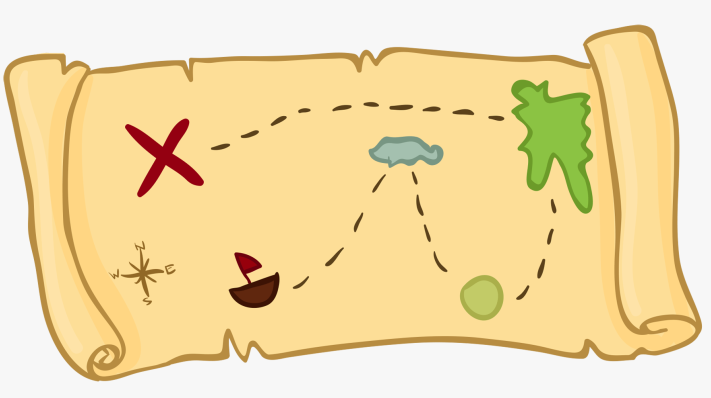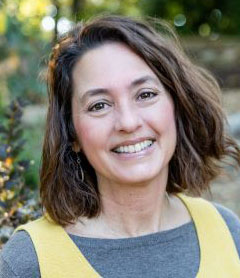When I was about to turn 30 — and shortly after watching “The Holiday” starring Kate Winslet — I made a bold decision.
I would travel to London for vacation.
Alone.
Just me, giving myself the gift of adventure while I thought about what I really wanted in life.
And I would save money by traveling right after the winter holidays — on New Year’s Eve.
I thought flying overnight on NYE would be exciting and romantic: I envisioned a dramatic midnight countdown … a hearty cheer from the passengers … and maybe a champagne toast as we landed in the new year.
Alas, that dream was quashed. No countdown, cheers or bubbly. The pilot only wished us a happy new year right before we deplaned.
That was one of the last times I expected someone else to make my fantasies come true.
On this solo trip to London, I learned how to create my own quests.
- First, I read a couple of guidebooks in the weeks leading up to my trip. This instantly made my vacation more meaningful: I knew some history, but only in book form. I was ready to bring that history to life.
- I made a *short* list of experiences/destinations that were MUSTS. Places I would regret not seeing. This forced me to prioritize what I valued.
- Instead of creating detailed, jam-packed itineraries, I built my days around the musts: Only one or so “musts” each day, like … visiting the legendary Harrods department store, where I cried in the marzipan room. You see … THERE IS ONE WHOLE ROOM JUST FOR DISPLAYING MARZIPAN CANDY IN VARIOUS FRUIT AND ANIMAL SHAPES. I would use the rest of the day to explore the area around each priority destination. For example: Once at Harrods, I booked an impulsive (and expensive) walk-in appointment in their hair salon, one of my most glamorous experiences ever.
Even though it was cold and the sky looked like concrete for the entire week, my London adventure was the best vacation of my life. Partly because I was alone and didn’t have to make any compromises. I could do exactly what I wanted.
But mostly because I gave myself enough structure to focus on what was most meaningful … and enough freedom to experience spontaneous magical moments, like that luxurious haircut.
Fast forward a decade later, during our pandemic quarantimes. I needed to create better boundaries between work and family time, now that both worlds merged at home. And I needed a better way to track my outcomes for our new telecommuting logs.
I found myself planning my days and weeks using the same London vacation approach.
Romantic me prefers not to think of it as time management … but as mapping out my weekly quests.

Here’s how I do it:
- First, I reserve about 30 minutes every Friday afternoon, looking ahead to the next week.
- I check my personal Google calendar for Big Life Stuff (birthdays, medical appointments, etc.)
- Then I check my Outlook calendar for work meetings, webinars and project deadlines.
- I map out my week on the basic Notepad app on my computer, splitting the days in half: Mornings and Afternoons. I plot the fixed meetings and deadlines and note the non-negotiable priorities for each day. My short list of priorities are the “X”s on my treasure map. These are often directly related to my top three goals for each quarter, as it’s easy to lose sight of the big picture. I also build in time to create agendas and prep before the meetings, so our Zooming is more meaningful. (Kind of like reading those guidebooks before a big trip.)
- Then I fill in the rest of the space with the other projects I’m working on, thinking strategically about when I tend to be most focused (mornings) and when I might tackle more administrivia (late afternoons). I keep a list of “evergreen” to-dos at the bottom of my document to fill in any gaps.
A typical day looks something like this:
_____________________
MONDAY
Create/send agendas for Wed & Thurs meetings
10 a.m.: IA team huddle
Focus on Priority Project No. 1
———————– (Lunch)
Focus on Priority Project No. 2
Draft blog post
3 p.m.: Webinar
{ Miscellaneous follow-up tasks }
____________________
Just like my vacation, not every minute or hour is scheduled. Plans can change in an instant, so this structure helps me focus on my priorities … and then I can improvise if necessary. Some meetings and deadlines are fixed, while most tasks can be moved around like modular furniture. This gives me plenty of time to respond to “fires” and some space to wander.
My no-frills Notepad schedule serves as a quest map … and a constantly evolving to-do list … and ultimately a record of my accomplishments, which I copy over into my telecommuting logs at the end of each week.
I actually look forward to my mapping session every Friday. I feel more productive, more in control over my time, and more relaxed over the weekend.
Most importantly, the process keeps coming back to the same question: What do I want to do with my precious time today … next week … forever?
— Stephanie Ogilvie Seagle, January 2021






 Shelley Lyons is glad to be back on campus as she is a Virginia Western alum, and has served as the Administrative Officer for Grants Administration at Virginia Western since early 2022. Prior to VWCC, her career focus was within the Human Services and Arts fields. She wrote her first grant in 1996 on a whim and has continued to plan and learn since that time. She most enjoys seeing a well-planned project come to fruition, where funder, project manager and beneficiaries can all feel success and see impact.
Shelley Lyons is glad to be back on campus as she is a Virginia Western alum, and has served as the Administrative Officer for Grants Administration at Virginia Western since early 2022. Prior to VWCC, her career focus was within the Human Services and Arts fields. She wrote her first grant in 1996 on a whim and has continued to plan and learn since that time. She most enjoys seeing a well-planned project come to fruition, where funder, project manager and beneficiaries can all feel success and see impact.